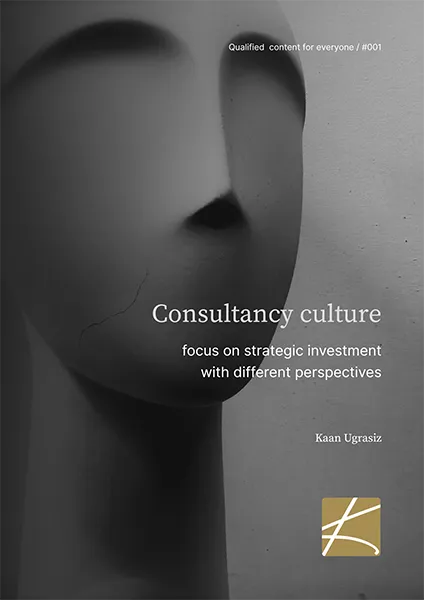Simply defined, consulting is the professional assistance a corporate entity receives on a specific issue. This assistance can span many different areas and dimensions, such as analyzing the company’s current situation, developing appropriate solutions to problems, creating roadmaps to achieve strategic goals, or supporting processes during the implementation phase.
Consultancy is the provision of the kind of expert advice companies need. These insights often relate to management, such as reviewing and improving business strategies, improving financial management, optimizing organizational structure, and increasing human resource efficiency. Furthermore, consulting services include conducting market research and strengthening marketing activities.
To simplify the process, the consulting mechanism works as follows:
- Defining the problem and determining the need for its solution.
- Assessing the current situation and comprehensive analysis using a method such as SWOT.
- Providing solution recommendations and providing implementation support.
- Monitoring and evaluating results.
The essence of consulting is to acquire knowledge not already within the corporate structure, gain experience, or develop an innovative perspective. Acquiring new knowledge or gaining experience is fundamental to competitive advantage; this allows companies to increase their productivity and strengthen their adaptability.
What is consulting not?
Consultancy is not merely a matter of providing managers with suggestions and suggesting what to do or not to do; collaborating to develop appropriate and rational solutions to identified problems is also a crucial part of this process.
- Consultancy is not a magical or miraculous endeavor that quickly, once and automatically solves all the problems encountered within the corporate structure. This process is only successful when it is sustained in conjunction with the existing internal dynamics of the corporate structure, its personnel, and, most importantly, the management level.
- Consultants can provide external support to the corporate structure and offer support on many internal issues, but active participation is the most critical factor in benefiting from consulting.
- Consultancy is not limited to large companies and holding companies. SMEs can benefit from consulting services, especially during growth phases or critical situations, when they need specific expertise.
- Contrary to popular belief, consulting is not a short-term solution. Appropriate consulting can be provided for long-term strategic planning, transformation, and ensuring quality and sustainable development.
- Consultancy does not mean that managers completely lose control of the corporate structure. It’s important to understand that consulting is an impartial and independent position that looks at the organization from the outside, prioritizing its interests. Consultants offer recommendations, outline roadmaps, and list solutions, but the final decision remains with management.

The foundations of a consulting culture
The concept of consulting is a crucial strategic partnership, enabling an external perspective to analyze a company’s current situation, identify its strengths and weaknesses, define its vision, mission, and core values, guide the team’s adoption of these values, and uncover development opportunities.
In countries where business practices are more professional, seeking business consulting is a natural function of the business world, an integral and indispensable element. Organizations’ primary goals in utilizing consulting services are to foster cultural transformation and foster an environment of trust in the business environment.
The cornerstone of consulting, whether corporate or managerial, is trust in both parties and the processes they carry out. Fostering a culture of trust and embedding it within the corporate structure ensures that both managers and employees within the consulting company are receptive to the consultant’s guidance.
To achieve effective results from consulting services, it is crucial for employees and leaders to actively participate in the consulting process. This approach, defined as a participatory approach, is a key criterion that facilitates the integration of the roadmaps, suggestions, and recommended changes presented to the company by the consultant into daily business processes.
It’s clear that a consulting culture fosters a mindset of continuous improvement. There’s something fundamental to the development desired by individuals and organizations, yet one that’s often overlooked or disregarded when companies conduct business: feedback. Consulting enables regular review of business processes and improves business operations.
How does consulting affect business culture?
- It increases productivity by optimizing business processes.
- It strengthens leadership and team harmony, ensuring a cohesive working environment.
- It enhances the company’s reputation and employee loyalty by improving the corporate culture.
- It provides an external perspective, allowing the company to gain a more innovative and enriched perspective when developing solutions.
Looking at a corporate structure from the outside is one of the best ways to foresee and identify potential risks. It’s easier for a consultant to develop solutions to mitigate or prevent these risks than it is for someone from within.
Approaches to consulting culture
In countries with developed industries, consulting services are considered an integral part of the business world. Companies of all sizes, and even one-man brands, are seen regularly seeking consulting services. This service is seen as a form of strategic investment.
Companies in developing but still fragile economies also have a consulting culture, but it is assumed that most of these consulting companies are large in size and have strong corporate structures.
It would be wrong to say that consulting is fully established in medium and small businesses. However, due to the demands of digitalization and pressure from competitors, the number of companies seeking consulting in areas such as investment incentives, green energy, and digital transformation is increasing daily.
Making the consulting process more fluid and successful:
- Make communication open, easy, and transparent.
- Promote ownership.
- Be willing to implement the consultant’s recommendations.
- Embrace a feedback culture and strengthen feedback mechanisms.
- Do not compromise on professionalism.
Consulting should not be considered a standalone solution for a structure, but rather a component of organizational development. It wouldn’t be wrong to describe it as the master key that unlocks every door to change and development. When managed correctly, the process provides significant short- and long-term advantages to the partnering organization.

Download e-paper for free: You’re going to find these topics in this document:
- What is consultancy and “not”?
- The foundations of a concultancy culture
- How does consulting affect business culture?
- Approaches to consulting culture
- Why companies avoid seeking consultancy?
- Consultancy as a “comfort zone” threat
- Reducing reluctance and resistance to consulting
- The cost of getting consultancy and hiring a consultant
- What are the factors affecting consultancy fees?
- Reluctance to seek advice in the family biz






